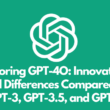
Regardless whether you’re a fresher applicant or an experienced jobseeker, there’re several qualities that any employer seeks.
And one among these are strong work ethics and work rules. Indeed, having good work ethics is one of the fastest roads to your professional development in every career.
In this article, I will explain what exactly is work ethic meaning and how to develop these for your professional development.
That could help you crack a job interview or increase your productivity at the current workplace, leading to career development and professional boost.
What is Work Ethic ?
Work Ethic Definition
In simplest terms, work ethics means your personal commitment to perform well at any given role or job and working to the best of your abilities.
It is done by using your educational qualifications, work experience and job skills.
Work ethics are also described as a set of values that focus on the importance of doing work to the best of your abilities and reflected in your hard work.
Work ethic can also be termed as the overall commitment to give your best to the job, utilizing all your skills and education for the betterment of the company and other employees.
Importance of Work Ethics
Overall, strong work ethics lead to higher productivity that results in profits for the company, advances your career and helps in financial growth through salary raises and extra perks.
Therefore, every good employer tries to determine if their new employee or even existing ones have good work ethics.
They can do so by posing questions during an interview or by observing the manner in which you go about doing your job at the specific role.
Generally, it is seen that employees with good work ethics emerge as leaders in their fields by getting managerial and other senior executive positions.
10 Important Work Ethics
Now that we’re clear about work ethic meaning and it’s importance, here’re the 10 important ones for your career and professional development. You might already have some of these.
However, if you find yourself lacking in any, there’s nothing to fear. You can develop some of these strong work ethics while at work.
1. Reliability
The first and foremost work ethic that you should have is reliability. This means, your employer and colleagues should be able to rely on you to do a specific job at your particular role.
Any organization is like a chain made up of links. And you’re one of the links in this organizational chain. Therefore, you’re equally if not more important than
When you’re reliable, you won’t be the weaker or unreliable link in this large chain. Therefore, your bosses and colleagues can depend upon you to do work on time and to everyone’s satisfaction.
Reliability is most important for teamwork. Colleagues on your team can rely upon you to perform to your fullest, which means that any project or assignment would be completed on time and in a professional manner.
2. Dedication
Dedication to your job is another work ethic that employers look for. When you’ve dedication, you’ll perform the tasks at hand regardless of the time and efforts it involves.
And you will complete such tasks to the best of your abilities, without giving excuses or blaming people for inabilities to do so. Dedication consists of a lot of factors.
When you’re a dedicated worker, you’ll exert extra efforts to make sure that your employer’s business records profits through whatever your work.
You will also be dedicated to your colleagues. Usually, dedication also means a commitment to stay with the employer for several years, if the conditions are right, overcoming adverse situations but holding strong and being dedicated to the wellbeing of your colleagues and seniors too.
3. Discipline
Perhaps the most important work ethic is discipline. Because no other work ethic can exist unless you have a superb level of discipline.
Basically, discipline means arriving at the office or workplace on schedule. And not leaving your work midway to waste time on coffee breaks, smoking or even using the washroom just to while away a few minutes.
Discipline also consists of making a proper schedule for your work. This means, you will prioritize tasks as necessary and go about completing them in a manner that would help the rest of the company’s workforce get the necessary support and assistance from you in time.
Furthermore, discipline includes not allowing work to pile up on your desk and executing tasks at the earliest, depending upon their importance to the organization.
4. Productivity

One more good work ethic to have is productivity. Understandably, every organization worth its name has its own in-house measures to gauge your productivity.
However, these aren’t adequate if you genuinely want to be productive. Instead of depending on company indices of your productivity, it’s best to have your own yardstick. And measure your overall productivity with own yardstick.
Productivity is an important work ethic because it can ensure your promotions and salary raises. The higher your productivity, greater your chances of bagging a promotion for a senior position and the salary rise that goes with it.
Your productivity matters because it impacts the overall productivity and profits of the organization. And when you’ve high productivity, your colleagues are encouraged and also try to increase theirs.
Therefore, one of the work ethics employers look for in fresher and experienced jobseekers as well as current employees is productivity. It has a direct bearing on the company’s overall performance.
5. Cooperation
Basically, cooperation is the manner by which you interact with other team members, company seniors and the company policies during your course of work and tenure of employment.
When you have a high level of cooperation, teamwork becomes easier for everyone. When you cooperate with company seniors, they will appreciate your sincerity to work and extend you all support.
And cooperation with company policies is actually compliance. That means, you’ll comply with all the rules and regulations of the company.
Cooperation also ranks as a top work ethic because an organization has several employees, seniors and a set of in-house rules.
Unless you cooperate with all these, you would be like a loose cannon, that’s out of sync with the company’s overall goals and objectives. Instead, cooperation can achieve much better results and result in the overall growth of the company.
It also ensures that you won’t violate any rules of the company that could lead to termination or even cause losses to the employer.
6. Integrity
Basically, integrity at workplace means adhering to higher moral principles. If you’ve integrity, you would be firstly honest to yourself and to your coworkers as well as the employer.
You wouldn’t do anything wrong that’s harmful for your colleagues or the organization or its business.
A high level of integrity means your colleagues and seniors can trust you with sensitive information, knowing it’s fully safe and secure in your hands.
Integrity also means the way you look at your overall employment. It includes loyalty to your employer and colleagues.
It involves staying away from petty office politics and instead, putting the organization’s welfare above own vested interests.
Integrity is a blend of honesty and reliability. And integrity is the best way to succeed at any job by winning over the hearts of your colleagues and seniors.
7. Responsibility
No organization on this planet wants an irresponsible worker or staff member. That’s because irresponsible people often end up compromising the interests of their employer and undermining the efforts of their colleagues.
Therefore, employers try to assess how responsible you are or would be towards a job, either while hiring or even when you’re working.
Because, employees that take responsibilities are usually good leaders and excel at their work. You can never leave aside responsibility and yet do proper work for the employer.
A responsible employee takes on every task with the sole objective of completing it to the best of satisfaction of the employer. And they take responsibilities for their team members too.
Additionally, taking responsibilities means also owning up mistakes, learning from them and moving forward in the job instead of brooding over what went wrong or blaming others.
Owning responsibility is a vital leadership skill. Employers desire such work ethics from their employees.
8. Professionalism

Professionalism means behaving in a manner that speaks highly about your educational qualifications, experience and skills. It includes using the right business etiquette and personal etiquette both at workplace and in personal life.
Professionalism also means the way by which you present yourself to your employer, colleagues, external entities and your social circle and the way you go about doing your work.
An employee with a high level of professionalism will always strive for maximum perfection at their jobs.
They will deploy all their educational qualifications, skills and experience to do the job professionally instead of merely doing some tasks because it needs to be done.
Persons with a high level of professionalism also think outside the box and find solutions where others fumble or fail. And the quality of their work is unmatchable.
9. Self-Motivation
Renowned American motivational speaker and author, Dr. Stephen R. Covey said: “Motivation is a fire from within. If someone else tries to light that fire under you, chances are, it will burn very briefly.” In these few words, Dr. Covey aptly sums up the importance of self-motivation for every employee and also employers.
Unless you’re self-motivated, it’s impossible to do any work professionally and to the satisfaction of your employers. That’s because self-motivation rises above all personal interests and puts the tasks at hand on priority.
Often at the time of job interviews, one of the most common question by employer is “What motivates you?” because self-motivated employees don’t require a reason to perform well.
They assume the responsibility themselves of executing a task or project well. And such employees seldom grumble or have grouses over others.
Instead, it’s the fire from within known as self-motivation that propels them to perform better each time and excel at their work.
Usually, self-motivated workers don’t even require much supervision. When the employer gives them a task, they get cracking immediately and try to complete it to the best of their abilities.
10. Flexibility
And finally, flexibility is one of the other work ethics that’s important. Flexibility means the ability to adapt to changes and especially, the need of the hour.
For example, you might have to exert extra efforts and spend longer hours at the workplace because of some urgent and pressing assignment or project.
You need to be flexible and accept the fact that you won’t be leaving the workplace at the end of the day. And that you’re willing to travel or assume other and more responsibilities if needed by the employer.
Flexibility also means getting rid of fixed set of ideas about work and being open to anything that’s in the greater interests of the employer. Of course, that doesn’t mean you take salary cuts merely to please an employer.
Instead, it means adapting your work to match whatever the situation that arises. Without flexibility, it is impossible to work.
In fact, HR studies indicate that employees with a high level of flexibility usually get promotions faster and can execute tasks better than those who’re rigid.
Knowing Your Work Ethics

Now that you know what’re the top 10 and important work ethics for professional development, it’s also important to find out whether you have all of them or lag somewhere.
This is possible through an honest self-assessment of your own professional ethics. You can do so privately.
The best way to assess your own work ethics is by doing a private Strengths, Weaknesses, Opportunities and Threats (SWOT) analysis.
This analysis helps you find various traits. You can easily identify which of the work ethics you already have and where you lag.
That way, you can further develop the existing and strong work ethics while trying to reduce grey patches by working on them.
Wrap Up
Modern day workplaces don’t merely depend upon an employee’s or jobseeker’s educational qualifications, experience and skills, Instead, they also try to assess work ethics during an interview through various questions and sometimes, psychometric tests.
Therefore, it’s important to know your own work ethics and improve them if you lag.





